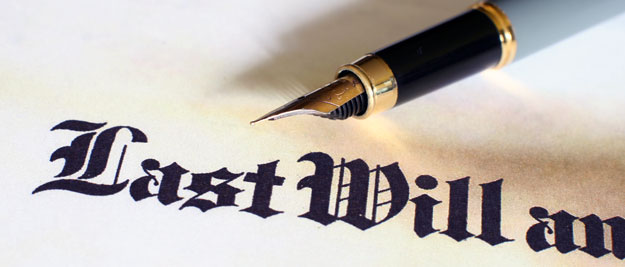Is is time you updated your will?

Every adult person should have a valid Will
No matter how much your assets are worth or how simple your wishes, if you are over 18 you should have a Will.
Making a Will is something that many people postpone. While no one likes to think about death, sooner or later it is something that we will all have to face. Having your affairs in order will lessen the legal and financial burdens on your family when the time comes.
Your Will should be professionally prepared by a legal practitioner. If your Will is not properly drafted it may not be enforceable. In such circumstances, the court may not grant probate and your property could be disposed of as if you died without a Will. A DIY Will kit (such as those obtained from newsagents) may sometimes suffice but such Wills have the potential to cause problems resulting in legal costs that greatly exceed any amount that may be saved in not having the document professionally prepared in the first instance.
If you made a Will some time ago, it is equally important to ensure that it remains up to date and is appropriate for your current circumstances. Changes in the law and changes in family circumstances, such as the death of a person mentioned in your Will or changes in the marital status of beneficiaries and the existence of grandchildren, may mean that your old Will no longer reflects your current wishes and needs to be updated.
estate planning
What is a will?
A Will is a written document setting out how you wish your assets to be dealt with after death.
It ensures that you direct the way that your property is to be dealt with.
A Will might be the most important document you ever sign in your lifetime.
Find more information about wills, estate planning and probate on our dedicated information pages.

Times when it is appropriate to make or update your Will
- If you marry, separate or divorce
- If you enter into or end a de facto relationship
- If you have children (including adopted or fostered children)
- If your executor dies or becomes unwilling or unable to act because of age, ill health or any other reason
- If a beneficiary (someone who has been left something in the Will) dies
- If you have specifically left any property which you subsequently sell or give away or put in trust or into a partnership
- If you re-arrange your financial affairs such as setting up a family trust, establishing a self managed super fund, entering a new business venture or retiring.
Can an unfair Will be challenged?
Chapter 3 of the Succession Act 2006 allows for certain eligible persons to make a 'family provision' claim on an estate if the eligible person considers they have been left with inadequate provision for their proper maintenance, education and advancement in life
If a person can establish their eligibility, the Court may find that, given their relationship to the deceased person, there was a moral obligation on them to provide for the eligible person's maintenance, education and advancement in life. In essence, what has to be established is that given the eligible person's financial situation and position in life, the deceased should have provided them with a legacy so as to allow the eligible person to have a better standard of living.
Unless the Court agrees that there are “special reasons”, all family provision applications are referred for mediation before any hearing takes place. For estates with a value of $750,000 or less the Court can choose to decide the cased based on the evidence filed by the parties, without the parties actually having to attend Court and be cross-examined. This again is aimed at reducing the costs incurred by the legal parties in smaller estates.
If you believe that you have been left without adequate provision in a Will, you should seek legal advice immediately (time limits apply).